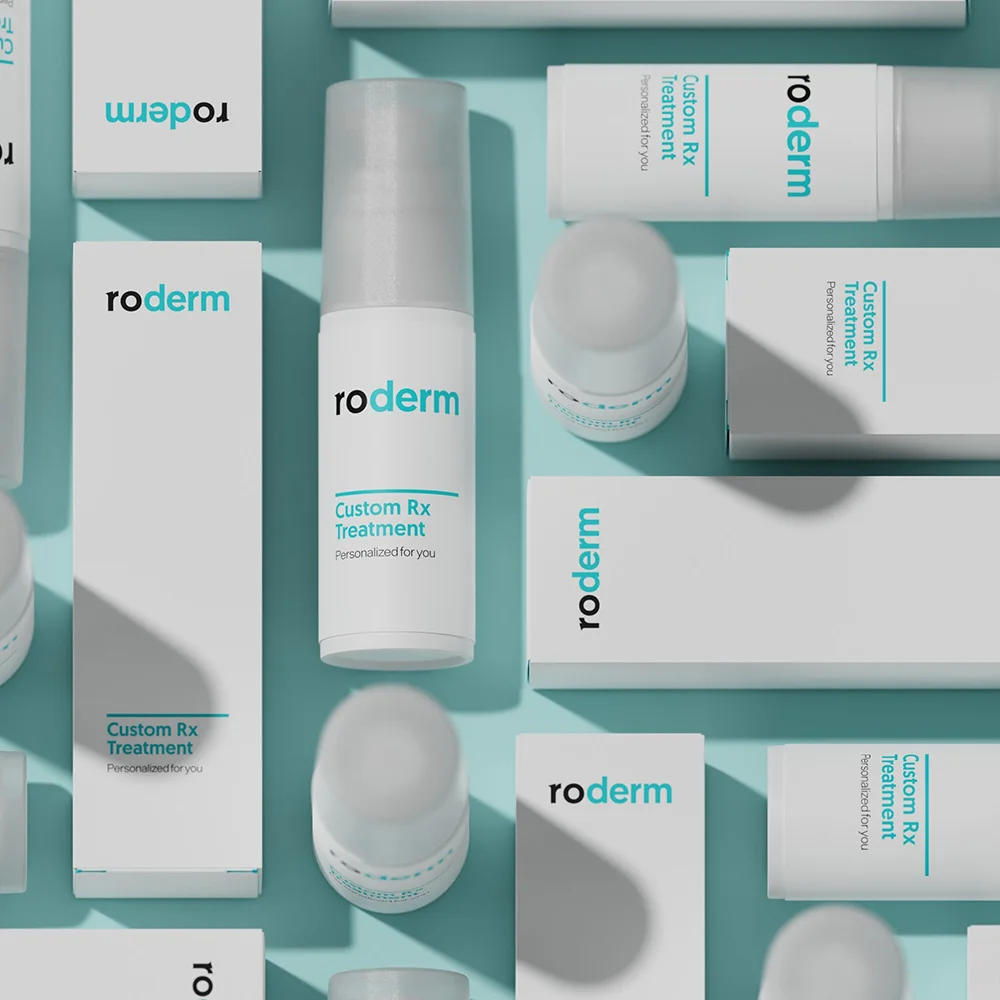Can I use tea tree oil for acne?

Reviewed by Yael Cooperman, MD, Ro,
Written by Hope Chang, PharmD
last updated: Feb 05, 2021
3 min read
Here's what we'll cover
Oily skin, pimples, unexpected breakouts. Sound familiar? We’ve all experienced acne at some point or another, and unfortunately, there’s no miracle cure.
While there are many over-the-counter and prescription options for treating acne, natural and plant-based options are also becoming more popular. One of these is tea tree oil, which smaller studies have found effective for treating breakouts and improving the appearance of acne scars (Mazzarello, 2018).
Does tea tree oil help with breakouts?
You might wonder, why turn to tea tree oil if there are already numerous prescription and over-the-counter acne treatment options out there?
Many of the common topical options, like retinoids and benzoyl peroxide, work well for acne but can irritate and dry out your skin (Oge, 2019). Antibiotics can also be used, but aren’t as popular anymore because the bacteria that causes acne can become resistant to the medication.
Currently, the amount of information available for natural health and skincare products is scarce. This is because the U.S. Food and Drug Administration (FDA) regulates drugs differently than supplements and skincare products (FDA, 2020). For example, the FDA approved an antibiotic called Clindagel after it had been clinically proven to be safe and effective for treating acne (FDA, 2000).
Tea tree oil, on the other hand, is not an FDA-approved treatment. That being said, there has been research published on tea tree oil-containing products and their effects on acne. One small study in 2018 found that creams containing tea tree oil were more effective for treating acne compared to other synthetic products (Mazzarello, 2018).
How does tea tree oil help with acne?
Pimples appear when bacteria, dead skin cells, and oil gets trapped in our pores and cause inflammation (Contassot, 2014). Acne medications work by reducing inflammation and lowering the amount of oil and bacteria on the skin to prevent pimples from forming.
Tea tree oil is an essential oil that comes from an Australian plant called Melaleuca alternifolia. It has antibacterial effects against a broad range of bacteria, including the germs commonly associated with acne (Carson, 2006). Tea tree oil also has anti-inflammatory effects, which may help reduce the size of pimples and prevent new ones from developing.
Will tea tree oil help with acne scars?
Although acne can be unpleasant, it’s comforting to know that blemishes, blackheads, and whiteheads will heal with time. But some may notice that after a breakout clears up, it has left behind red and purple marks. While these scars usually go away on their own, there are treatments that can speed up the healing process.
Research has found products containing aloe vera, tea tree oil, and propolis extract (which bees produce to build their hives) significantly reduced redness in acne scars. This combination cream was also better at reducing the appearance of scars compared to synthetically produced creams (Mazzarello, 2018).
While many acne scars will go away on their own, talk to a dermatologist if scars haven’t gone away after many months or years. In this case, there are treatment options, such as chemical peels, laser therapy, and fillers, that can help reduce their appearance (Fife, 2011).
How do I use tea tree oil?
Tea tree oil is generally safe to use, but there are some dos and dont's to follow.
If it’s your first time trying tea tree oil for acne, you shouldn’t apply pure oil directly to your skin. Like other essential oils, it needs to be diluted first so it doesn’t irritate your skin (most studies have used 5% tea tree oil or less).
Diluting oils yourself can be tricky, so it might be easier to purchase a ready-to-use product instead. Follow the package directions carefully as products vary. For example, some oils can be left on, while others need to be washed off. Try not to use products more often than recommended, as this may lead to irritation.
Some products also suggest doing a patch test somewhere else on your body before using it on acne-prone skin areas. Patch tests can be beneficial for those with sensitive skin. If you find that tea tree oil isn’t helping, you can follow up with a dermatologist to identify the best products for your skin type and situation.
DISCLAIMER
If you have any medical questions or concerns, please talk to your healthcare provider. The articles on Health Guide are underpinned by peer-reviewed research and information drawn from medical societies and governmental agencies. However, they are not a substitute for professional medical advice, diagnosis, or treatment.
Bhate, K., & Williams, H. C. (2013). Epidemiology of acne vulgaris. British Journal of Dermatology, 168(3), 474-485. doi: 10.1111/bjd.12149. Retrieved from https://onlinelibrary.wiley.com/doi/full/10.1111/bjd.12149
Carson, C. F., Hammer, K. A., & Riley, T. V. (2006). Melaleuca alternifolia (Tea Tree) Oil: a Review of Antimicrobial and Other Medicinal Properties. Clinical Microbiology Reviews, 19(1), 50-62. doi: 10.1128/CMR.19.1.50-62.2006. Retrieved from https://www.ncbi.nlm.nih.gov/pmc/articles/PMC1360273/
Clindagel [package insert]. Bridgewater, NJ: Valeant Pharmaceuticals; 2000. Retrieved from https://www.accessdata.fda.gov/drugsatfda_docs/label/2001/50782lbl.pdf
Contassot, E., & French, L. E. (2014). New Insights into Acne Pathogenesis: Propionibacterium Acnes Activates the Inflammasome. Journal of Investigative Dermatology, 134(2), 310-313. doi: 10.1038/jid.2013.505. Retrieved from https://www.jidonline.org/article/S0022-202X(15)36614-8/fulltext
Enshaieh, S., Jooya, A., Siadat, A. H., & Iraji, F. (2007). The efficacy of 5% topical tea tree oil gel in mild to moderate acne vulgaris: a randomized, double-blind placebo-controlled study. Indian Journal of Dermatology, Venereology, and Leprology, 73(1), 22. doi: 10.4103/0378-6323.30646. Retrieved from https://pubmed.ncbi.nlm.nih.gov/17314442/
Fife, D. (2011). Practical evaluation and management of atrophic acne scars: tips for the general dermatologist. The Journal of clinical and aesthetic dermatology, 4(8), 50. Retrieved from https://www.ncbi.nlm.nih.gov/pmc/articles/PMC3168245/
Mazzarello, V., Donadu, M. G., Ferrari, M., Piga, G., Usai, D., Zanetti, S., & Sotgiu, M. A. (2018). Treatment of acne with a combination of propolis, tea tree oil, and Aloe vera compared to erythromycin cream: two double-blind investigations. Clinical Pharmacology: Advances and Applications, 10, 175. doi: 10.2147/CPAA.S180474. Retrieved from https://www.ncbi.nlm.nih.gov/pmc/articles/PMC6298394
Ogé, L. K., Broussard, A., & Marshall, M. D. (2019). Acne Vulgaris: Diagnosis and Treatment. American Family Physician, 100(8), 475-484. Retrieved from https://www.aafp.org/pubs/afp/issues/2019/1015/p475.html
U.S. Food and Drug Administration. (2020, August 24). Is It a Cosmetic, a Drug, or Both? (Or Is It Soap?). Retrieved January 18, 2021, from https://www.fda.gov/cosmetics/cosmetics-laws-regulations/it-cosmetic-drug-or-both-or-it-soap










